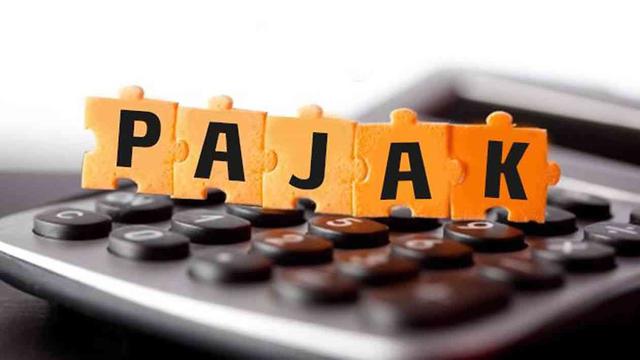Law No. 11 of 2021 on Job Creation (“Job Creation Law”) has amended 3 (three) Laws in the field of taxation including the Income Tax Law, the Value Added Tax Law, and the General Provisions and Taxation Guidance Law.
In order to provide further explanation related to the implementation of the Job Creation Law, the government has issued Government Regulation No. 9 of 2021 concerning Taxation Treatment to Support Ease of Doing Business (“GR 9/2021”). GR 9/2021 is effective from the date it was promulgated, which is on February 2, 2021.[1]
The important points that are highlighted by us in the discussion of GR 9/2021 are as follows:
Withholding Tax on bond interest
Prior to the entry into force of the Job Creation Law, the Income Tax Law stipulated that the Income Tax would be charged on any income in the form of interest (including premiums, discounts and rewards) in connection with the guarantee of return of debt received by foreign taxpayers who are not in form of Permanent Establishment (in Bahasa: Badan Usaha Tetap “BUT”) of 20% (twenty percent) of the gross amount paid by the relevant party.[2]
That provision is affirmed in the Job Creation Law.[3] However, furthermore the Job Creation Law provides an opportunity for the government to reduce interest tax that may be regulated in the provisions of Government Regulations.[4] This opportunity is realized through GR 9/2021 which stipulates that the tax on bond interest rate be lowered to 10% (ten percent) or in accordance with the rate based on multiple tax avoidance approvals.[5]
The interest rate of 10% comes into effect after 6 (six) months from the entry into force of GR 9/2021, meaning that this provision is effective starting on August 2, 2021.[6]
Provisions of Domestic Dividend Tax Exemption
Referring to the provisions of Article 4 GR 9/2021, the provisions of GR 9/2021 change the provisions of PP 94/2010. Furthermore, GR 9/2021 stipulates that the exemption of dividends or other income from the Tax Income Object applies to dividends or other income received by taxpayers of private persons and domestic entities.[7]
Dividends excluded from Income Tax Objects are dividends distributed through general meetings of shareholders or interim dividends, or dividends distributed through meetings or other similar mechanisms.[8]
Furthermore, the Income Tax on dividends received by domestic private taxpayers but not reinvested in Indonesia becomes owed and must be paid by the taxpayer through the procedures stipulated in the Ministry of Finance Regulation.[9]
Consignment Provisions
GR 9/2021 emphasizes that the delivery of moving goods from the owner of the goods (consignor) to the recipient (consignee) and from the consignee to the actual buyer will still be subject to Value Added Tax (VAT) when meeting the following criteria:
| The Party | Requirement |
| Consignor | The transfer occurs when:[10] 1. The price on the delivery of Taxable Goods is recognized as receivable or income; or 2. Commercial invoice issued by VATable Entrepreneur (in Bahasa: Pengusaha Kena Pajak “PKP”) consignors, in accordance with generally accepted accounting principles and applied consistently.
|
| Consignee | The transfer occurs when:[11] 1. The Taxable Goods are submitted directly to the buyer or third party for/and on behalf of the buyer; 2. The Taxable Goods are handed over directly to the recipient of the goods for free provision, self-use, and delivery from the head-office to branch or vice versa and / or the delivery of branches; 3. The Taxable Goods are delivered to the courier service or transportation service company; or 4. The price on Taxable Goods is recognized as receivable or income, or at the time of issuance of the sales invoice by the Consignee PKP, in accordance with generally accepted accounting principles and applied consistently.
|
VAT Obligations for Retails
Retail merchant taxable entrepreneurs are required to create a complete VAT invoice at the time of making certain shipments to the end consumer, including transactions completed through the e–commerce platform.[12]
DISCLAIMER:
Any information contained in this Article is provided for informational purposes only and should not be construed as legal advice on any subject matter. You should not act or refrain from acting on the basis of any content included in this Legal Update without seeking legal or other professional advice. This document is copyright protected. No part of this document may be disclosed, distributed, reproduced or transmitted in any form or by any means, including photocopying and recording or stored in a retrieval system of any nature without the prior written consent of SIP Law Firm.
[1] Article 11 GR 9/2021
[2] Article 26 paragraph (1) point b of Law 7/1983
[3] Article 26 paragraph (1) of Law 7/1983, as amended by the Job Creation Law
[4] Article 26 paragraph (1b) of Law 7/1983, as amended by the Job Creation Law
[5] Article 3 paragraph (3) GR 9/2021
[6] Article 3 paragraph (8) jo. Article 11 GR 9/2021
[7] Article 2A paragraph (1) of GR 994/2010, as amended by Article 4 GR 9/2021
[8] Article 2A paragraph (2) GR 94/2010, as amended by Article 4 GR 9/2021
[9] Article 2A paragraph (6) and paragraph (7) of GR 94/2010, as amended by Article 4 GR 9/2021
[10] Article 17A paragraph (1) GR 1/2012, as inserted through Article 5 GR 9/2021
[11] Article 17A paragraph (2) GR 1/2012, as inserted through Article 5 GR 9/2021
[12] Article 20 paragraph (1) GR 1/2012, as amended through Article 5 GR 9/2021
